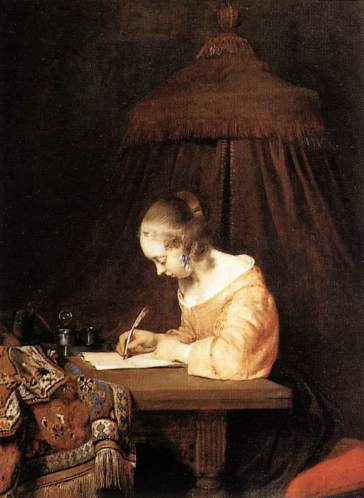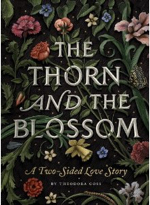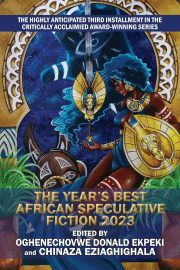Guest Post: Craft and Art
by Theodora Goss
 Recently, I’ve been thinking about how grateful I am to be teaching creative writing. It’s different from teaching any other kind of writing. When I teach academic writing, for example, I teach students how to write in a certain way, how to make a persuasive argument in prose. I teach them how to introduce their argument, prove the argument in the paper, and then conclude by discussing the significance of what they have argued. When I teach creative writing, there’s no format, or not in the same way. The writer has to find the form of the story, and every story has a different form. Oh, there are formats I can teach, but they are useful to the writer only to the extent that they make the story more interesting, more compelling. The story, not the format, is of primary importance.
Recently, I’ve been thinking about how grateful I am to be teaching creative writing. It’s different from teaching any other kind of writing. When I teach academic writing, for example, I teach students how to write in a certain way, how to make a persuasive argument in prose. I teach them how to introduce their argument, prove the argument in the paper, and then conclude by discussing the significance of what they have argued. When I teach creative writing, there’s no format, or not in the same way. The writer has to find the form of the story, and every story has a different form. Oh, there are formats I can teach, but they are useful to the writer only to the extent that they make the story more interesting, more compelling. The story, not the format, is of primary importance.
So I’ve been thinking about what I believe with respect to writing. Here are some of the things I believe:
I believe that there is a difference between craft and art. Craft is absolutely essential: to be an artist, you must know the craft of writing. You must understand how words mean, how sentences are put together, how to construct stories. When I teach writing, I teach craft. Art goes beyond craft, and has to do with what a writer, as an individual, brings to writing. Art is in the way Virginia Woolf explores consciousness. In the way George Orwell writes about politics. Both Woolf and Orwell make stylistic choices, write the way they write, because of what they’re focusing on, because of their convictions about reality. I can’t teach a student to write like Virginia Woolf. I can only teach a student why she wrote as she did.
What we think of as crafts can achieve the level of art, and what we think of as arts can be practiced as crafts. A quilt can become a work of art. And writing can be practiced purely as craft. I’ve read romances that are certainly good, as craft. And there’s nothing wrong with good craft. Not all writing has to aspire to art. But I teach my students to aspire, because I do believe that a work of art is a higher, more complex, more difficult thing to create. I can’t teach a student how to be an artist. I can teach good craft, and point the way toward great art. I can indicate what it looks like. (I think J.R.R. Tolkien was practicing a great art. His later imitators are examples of craft.)
I don’t think it’s a coincidence that Stephen King subtitled his book on writing “A Memoir of the Craft” and E.M. Forster called his book The Art of the Novel. (These are two of my favorite books on writing.) King is primarily concerned with craft, as I think he should be. He was trying to teach, and craft is what can be taught. A writer is often better off simply focusing on the craft and letting the art take care of itself, at least for most of the writing process. Forster was concerned with how the novel, as a work of art, actually works.
I believe there is absolutely such a thing as talent, and that if we deny the existence of talent, we are kidding ourselves. I teach over a hundred students each year, and they come into my classes with different levels of ability. Some have a talent for writing, which means they can hear how words and sentences fit together, as a musician hears music. Writing is not necessarily any easier for them, but they approach it differently. However, a talent for writing should really be thought of as talents: in creative writing workshops, where all of my students are there because of their writing talent, I teach students who are good at poetic prose style, students who are good at plotting or creating compelling characters. Different students have different talents. And while talents are to a certain extent natural abilities, like the musician’s ear, all talents need to be developed. Talent is only the beginning, and talent can sometimes lead students astray. If they believe or rely too much on their natural abilities, they are liable to neglect the craft.
My role as a creative writing teacher is to take an individual with inclination, who has already demonstrated a basic level of talent, and work on the craft of writing. Which itself is a privilege. And then to point the way to art and say, if you wish, that’s where it is, in that general direction . …

Woman Writing a Letter by Gerard Terborch
•••
 Theodora Goss was born in Hungary and spent her childhood in various European countries before her family moved to the United States. Although she grew up on the classics of English literature, her writing has been influenced by an Eastern European literary tradition in which the boundaries between realism and the fantastic are often ambiguous. Her publications include The Thorn and the Blossom: A Two-Sided Love Story (2012); the short story collection In the Forest of Forgetting (2006); Interfictions (2007), a short story anthology coedited with Delia Sherman; and Voices from Fairyland (2008), a poetry anthology with critical essays and a selection of her own poems. She has been a finalist for the Nebula, Crawford, and Mythopoeic Awards, as well as on the Tiptree Award Honor List, and has won the World Fantasy and Rhysling Awards. This post first appeared on her blog.
Theodora Goss was born in Hungary and spent her childhood in various European countries before her family moved to the United States. Although she grew up on the classics of English literature, her writing has been influenced by an Eastern European literary tradition in which the boundaries between realism and the fantastic are often ambiguous. Her publications include The Thorn and the Blossom: A Two-Sided Love Story (2012); the short story collection In the Forest of Forgetting (2006); Interfictions (2007), a short story anthology coedited with Delia Sherman; and Voices from Fairyland (2008), a poetry anthology with critical essays and a selection of her own poems. She has been a finalist for the Nebula, Crawford, and Mythopoeic Awards, as well as on the Tiptree Award Honor List, and has won the World Fantasy and Rhysling Awards. This post first appeared on her blog.


